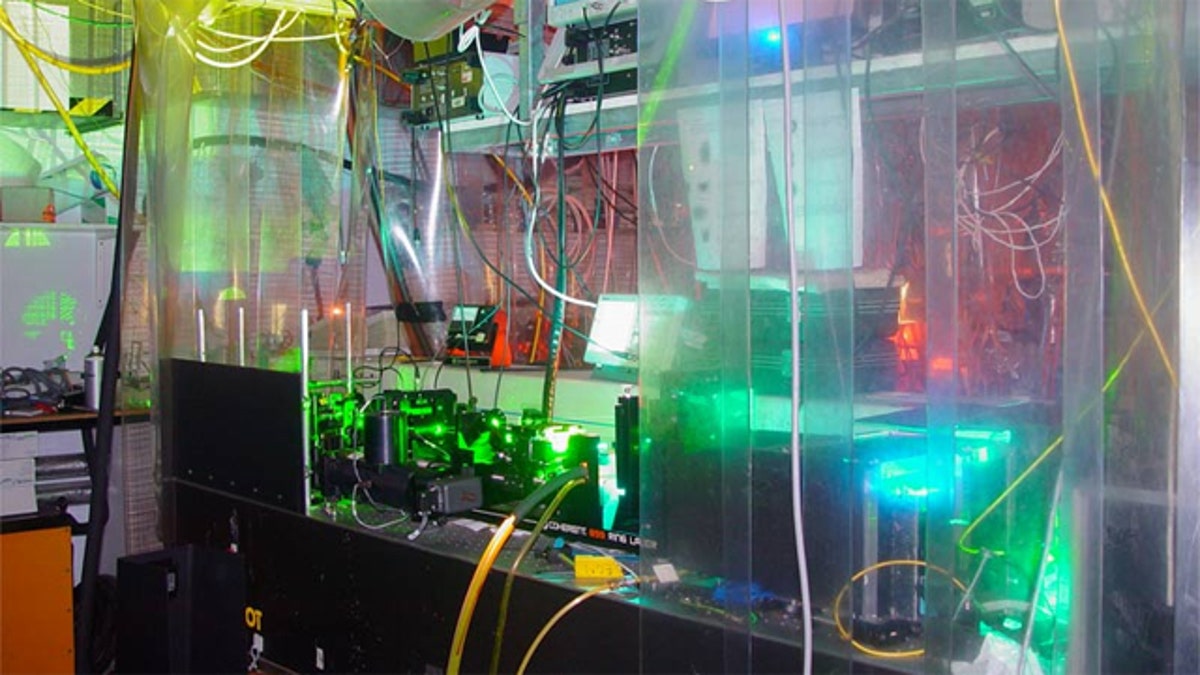
Part of the laser system used for measuring the shape of the electron. (Joe Smallman)
The electron was hailed by British scientists Thursday as the roundest natural object in the universe.
Researchers from Imperial College London conducted a decade-long laser experiment on the subatomic particle and discovered that it differs from a perfect sphere by less than 0.000000000000000000000000001 of a centimeter -- so that "if the electron were magnified to the size of the solar system, it would still appear spherical within the width of a human hair."
"I don't know of any naturally-occurring object that is rounder and has been measured to the same level of accuracy," said research leader Dr. Jony Hudson, writing in the journal Nature.
The breakthrough on the shape and structure of one of the fundamental building blocks of atoms could advance research on why more matter than antimatter exists in the universe.
The electron was previously considered to have a distorted shape -- causing the subatomic particle and its antimatter opposite, the positron, to behave in different ways -- but that theory now seems unlikely.
"As we've found that so far as we can tell, the electron is round, this rules out some of the possible explanations for the fate of antimatter," Hudson said.
Professor Edward Hinds, another member of the research team, added that "physicists just do not know what happened to all the antimatter, but this research can help us to confirm or rule out some of the possible explanations."
"It's been a very difficult measurement to make, but this knowledge will let us improve our theories of fundamental physics," Hudson said.








































